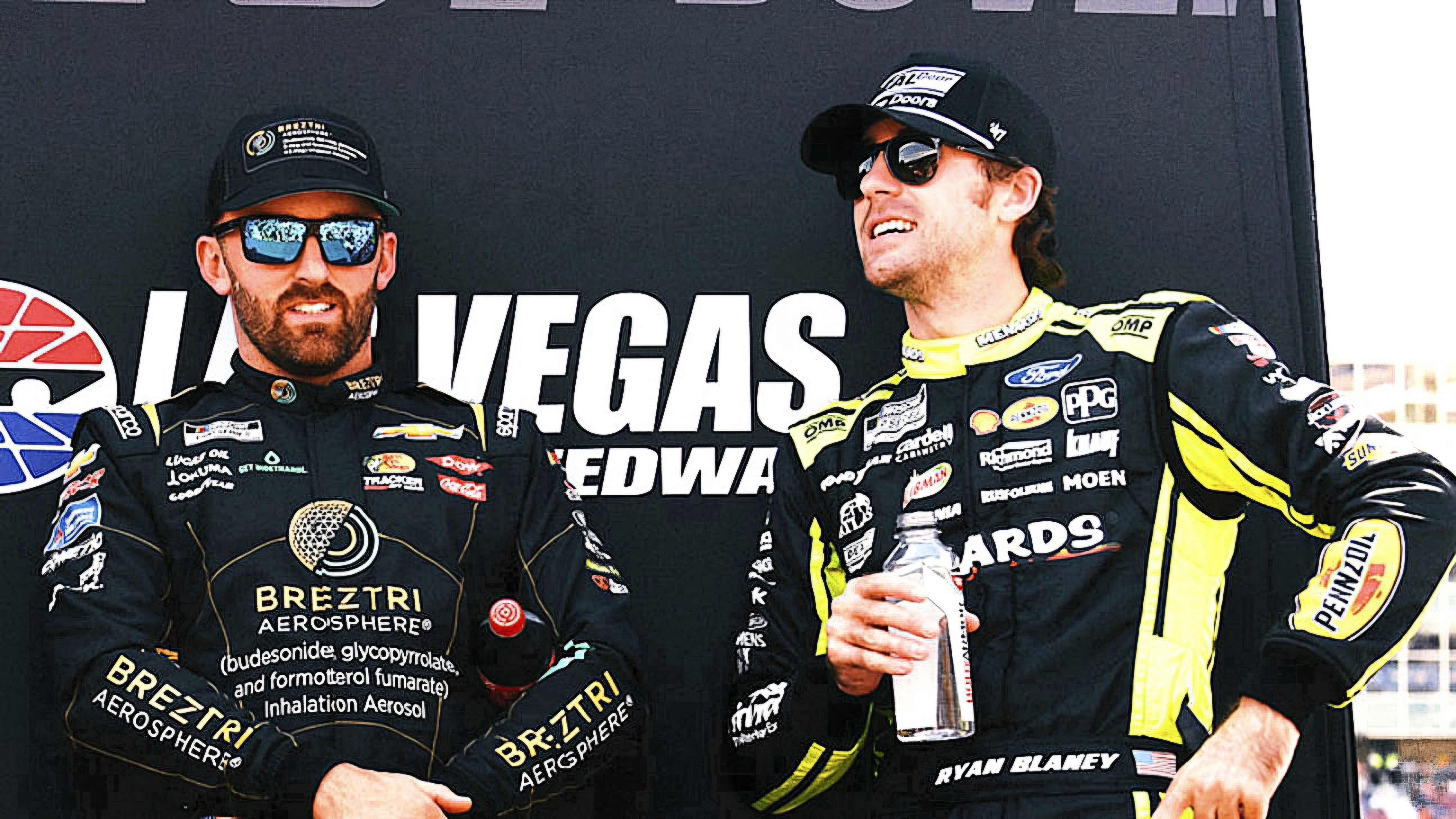Speaking to Kevin Harvick on his Happy Hours YouTube show, reigning and defending NASCAR Cup Series champion Ryan Blaney says he understands why Austin Dillon did what he did at the end of the race on Sunday at Richmond but also that he would never cross that line himself.
Dillon, well outside of a playoff transfer spot on championship points could only advance into the playoffs with a victory, and dominated the second half of the Cook Out 400. But a caution with two laps to go set up an overtime finish in which Joey Logano took the lead.
Dillon came from over four car lengths back to drive right through Logano’s Team Penske No. 22 in Turn 3 and then turned hard left into Denny Hamlin, right rear hooking the Joe Gibbs Racing No. 11 into the wall, all in the name of getting to the finish line first.
NASCAR ultimately chose to strip Dillon of the automatic advancement into the playoffs.
Blaney, who is a teammate to his fellow champion at Penske, understood the stakes.
“Yeah, you know, I feel like it’s like, on that side of it, yes, like you’ve got to do whatever it takes to win,” Blaney said when asked by Harvick how he saw the sequence of events. “He’s obviously way outside the playoff bubble where he needed to win, the No. 3 car, and getting into the No. 22 and ending up spinning him out from way back. You know, it wasn’t like he was a car length back up into three. He was five back, and I don’t know if he ever touched the brake pedal to get to the No. 22. He missed it so bad that the No. 11 was gonna pass him, and then he gets, he kind of hooks the No. 11, you know.
“So, I feel like that was another step further in the controversy of, ‘Okay, yeah, you spun the leader out from pretty far back, and then you kind of double-down and then hook a guy to win.’ Yeah, I mean, you’re in a desperate situation, but to me, that was kind of overkill. Like, that’s — what are we getting into as a sport, of where that’s open? Yeah, we’re all for hard racing, and it’s been a contact sport for a long time, but I feel like that was just kind of a step over. Like, that was just too excessive, too much, you know, to really be, like, psyched up about. Yeah, you know, like, that’s maybe not right — the right way to do it, but I don’t know. I’m not in his shoes.”
At the same time, Blaney believes that is a line he would not have crossed.
“No. I would never do that, like, intentionally,” Blaney said. “Like, yeah, all right, you get into a guy. Maybe you don’t mean to spit him out, but, you know, then you hook a guy again, another guy, because you missed the corner so bad to get to a guy. So, I would like to say I wouldn’t do something like that.
“I mean, you got beat on the restart, you know. I mean, fair and square. Yeah, you were going to win the race before the last caution, but this is motorsports, and unpredictable things happen, and you have to, you know, kind of go with what’s given to you, and he got beat.
“You know, he got — Joey drove around him on the top right away and got away from him, and you know, you had your chance to win it fair and square there on the restart. You know, you run maybe, if you run Joey up and Turn 1 and 2 on the restart, that’s one thing, right? You kind of bang doors, whatever, go on your way. But then, I feel like that was just kind of a step further.”
But again, Blaney understands why Dillon felt so compelled in that moment.
“He went up and passed the No. 22. He passed the No. 22 and he passed the No. 11. You know, he did everything right, up until that point,” Blaney said. “And, you know, yeah, I mean, like he said, right? He’s had a rough year, right? It hasn’t gone their way. They’ve struggled a little bit, and this is your night, right? You have an opportunity to win, lock yourself into the playoffs.
“But like I said, you had your shot on the restart and you lost it. If you’re going to use somebody up, use them up on the restart. But it’s just kind of over-excessive there.”
Richard Childress Racing is appealing the decision as the difference between making the playoffs and not is over a difference of two million dollars, virtually an eighth of what it takes for the organization to field the No. 3 car over the course of a full season.

